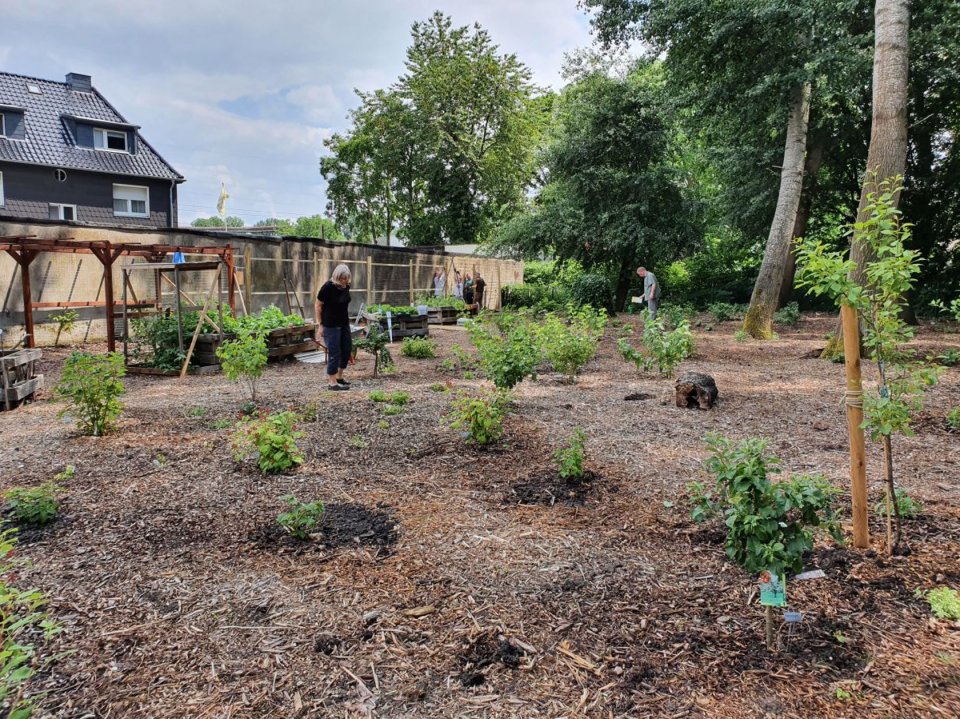
Huckarde is an old working-class district with large post-industrial areas. The food forest is located in the center of Huckarde on an unused garden area of the community center of St. Urbanus church. The large garden with extense lawn and shrub areas as well as old trees is regularly used by church members. Therefore, the food forest attends high interest.
To create a 3,000 m² food forest – a self-sustaining woodland ecosystem designed for food production –together with the scouts and the members of the St. Urbanus community and the boy and girl scouts from Deutsche Pfadfinderschaft Sankt Georg (DPSG). During several workshops the garden was commonly designed and realized as well as knowledge given to empower people to take care of the garden in the long term. It is intended that people will take over sponsorships for parts of the food forest.
In a workshop in May 2019, four raised beds were created over a weekend, which were set up together with about 50 helpers and planted with bee-friendly flowering plants and vegetables. This event marked the beginning of the co-design process with the scouts and the executive board of the parish. In several meetings the ideas of the participants were taken up and it was discussed how these can be implemented in a food forest. Together with an expert in permaculture, a plan was drawn up, adapted to natural conditions of the site with different vegetation zones.
Implementation of the garden was planned for spring 2020. Due to the corona virus, actions had to be postponed and redesigned. However, from May 2020 onwards, the garden was set up in small groups of two people. Die Urbanisten have written instructions and recorded videos to explain the work steps. Wood chips were first applied to the area before the first trees, shrubs, herbs, and vegetables were planted.
In October 2020 and from spring 2021 onwards various planting actions took place, a pergola and a compost bin were built. The plantings follow the principle of permaculture food forests, according to which plants are grown on several levels. The community is very committed to advancing and sustaining the project. It will take several years to decades for a forest garden to fully develop, but after the establishment phase, it doesn't need much maintenance.
In addition to the long-term effects like increasing ecological functions such as soil improvement and biodiversity, the food forest can support urban climate adaptation through cooling and water retention. The food forest can be a place for the local population to learn about sustainable cultivation methods for their own gardens.
Food forests can serve as examples for environmental education to explain principles of permaculture. As the conceptual idea of a food forest can be adapted to various local natural settings the degree of transferability is high.
The parish had the idea to plant fruit trees in 2019 in its garden. At the same time proGIreg project partners were looking for a site to realize a food forest. The common upgrading of the concept, the unbureaucratic support of the church executive board, the availability of a large network of interested and engaged persons who helped to realize the project were aspects for the success of the project.
EU Horizon 2020 project: Productive Green Infrastructure for post-industrial urban regeneration
